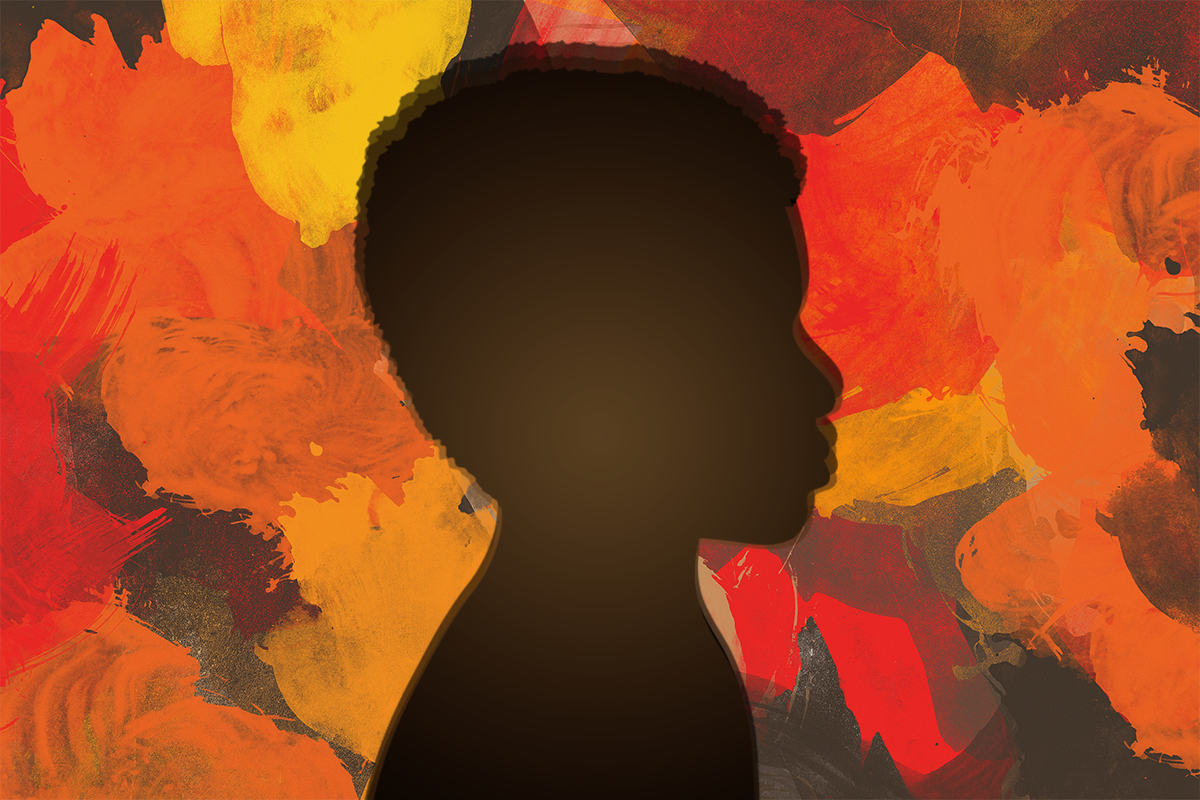
Exploring Juvenile Justice and Mental Health with Teen Game Designers (Part 1)
Youth of color face particularly egregious disparities in the juvenile justice system, especially in the provision of mental healthcare. Here’s how we’re using game design to co-design solutions with teens who’ve navigated it firsthand.
Since 2019, iThrive Games has been collaborating with partners to use games and game design to highlight the voices of Black youth involved with the juvenile justice system. Inequity in the provision of mental health services on the basis of race before, during, and after system involvement negatively impacts the health, well-being, employment opportunities, educational attainment, and relationships of individuals of color. Youth in our program use game design techniques to express their lived experiences with the justice system. They use the games they design to engage stakeholders in conversations about the inequities within the system and to identify how the systems could be improved to better meet the mental health needs of other young people who are subjected to the cradle-to-prison pipeline.
The current cohort of youth hails from Boston. The participants have been system involved at some point of their lives and now have a round of game development under their belts. For the purposes of this article, we'll use initials for the names of the participants.
These youth designers enhanced and completed a game called The Run Around, which was initially prototyped by an earlier cohort. The Run Around board game helps youth-serving adults and stakeholders understand how youth feel and explore opportunities to improve services and experiences for youth. The gameplay provides an opportunity to have important conversations around critical questions for supporting youth: how can we help youth who are getting out of the system reintegrate successfully to stable living? How can we better understand the feelings and behaviors young people grapple with to provide the support they need before being swept into the system, and while in the system?
The youth designers created this game using iThrive's "Surfacing-Coping-Acting" co-design cycle. The goal of this approach is to invite teens to raise up (surface) and work productively (cope and act) with the experiences that make adolescence both an incredible and vulnerable developmental stage.
"Social and emotional learning happens in community," said Susan Rivers, Executive Director and Chief Scientist of iThrive Games. "Belonging is key to our sense of wellbeing-especially so for teens as their brains continue to develop. Our co-design process not only supports well-being of the youth designers at this moment, but it also allows them to pay it forward by suggesting wellbeing supports for other youth who are involved with the system."
In the surfacing part of the design cycle, the youth designers shared some of the experiences they had when they were involved with the system. By sharing their experiences with each other, they validated one another's experiences and did the healing work listening and being listened to. Sharing difficult stories with others is one proven way to manage the discomfort and to challenge any fears that we're different or alone in our struggles.
K.C. shared what she thought was most important for people to understand about her experience.
"...It isn't easy at all. And we do go through struggles that we need help with," she said. "The world needs to know that the minority community goes through. It's sad that a lot of people in the world don't understand how messed up the justice system or school system is for minorities in the US today."
M.A. found that using his experience to design a game reinforced something he felt he already knew.
"It wasn't a surprise but when I saw it being implemented in the game, I thought, oh, that's dope," he said. "The only white character in the game starts off in minimum security. That was an insight...because he's white he goes in minimum not maximum."
"Game design has the power to help youth understand the systems that impact their lives," said Janelle Ridley, Founder of Transition HOPE. "In community, by sharing experiences and reflecting together, they can move toward how best to use their own agency to impact those systems."
The act of sharing and creating together offered an opportunity for social and emotional learning for the game designers.
"I knew it took a lot to make a game," said M.A. "It takes more than a lot. It takes everybody. Everyone brings a different skill. It takes a lot of teamwork. That's what I took away from the experience."
Part 2 of this series will explore the creation of the game and plans to share it with stakeholders.


